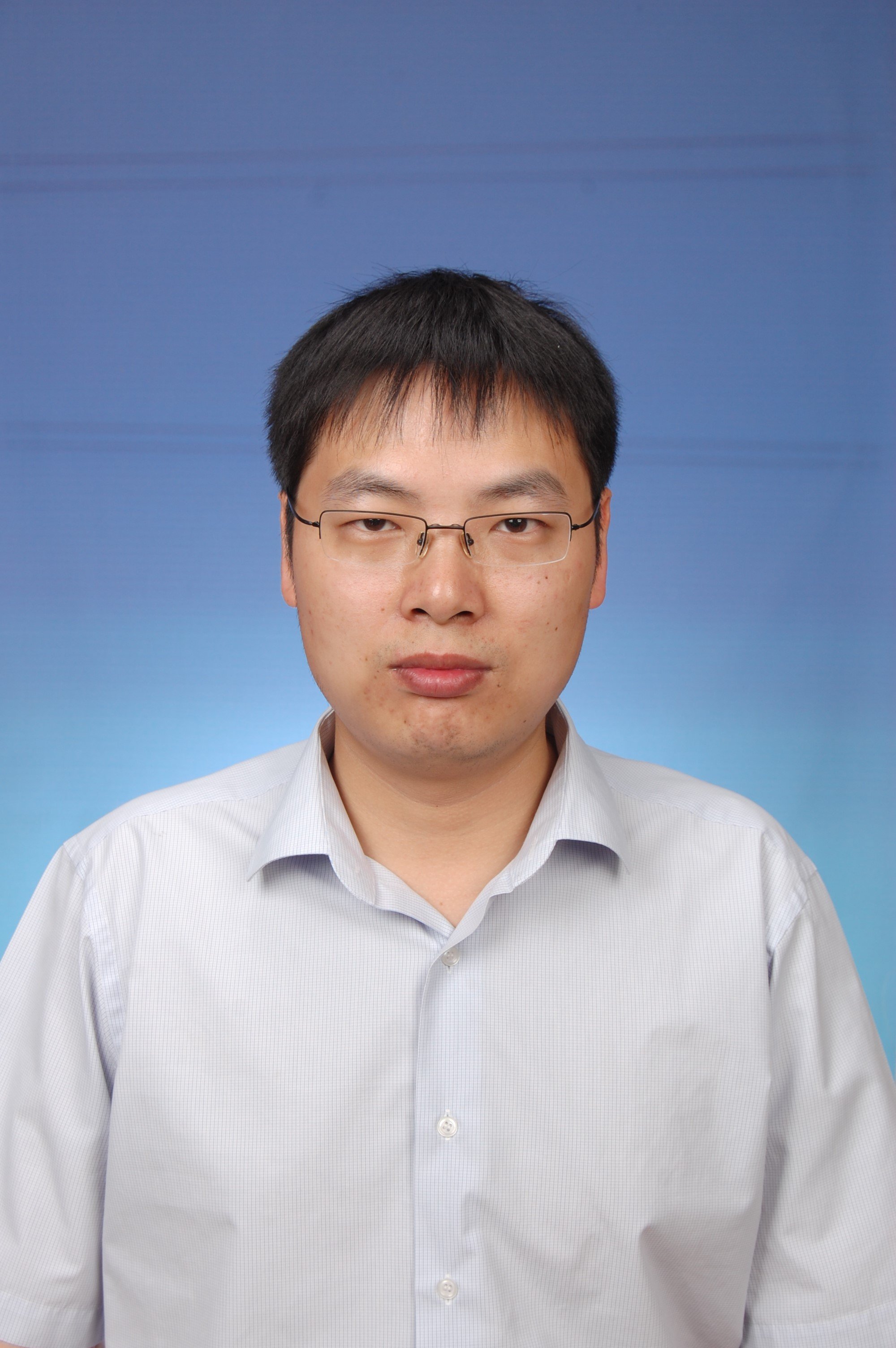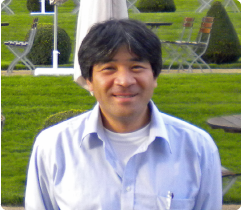
Journal Menu
► ▼ Journal Menu-
- Catalysts Home
- Aims & Scope
- Editorial Board
- Reviewer Board
- Topical Advisory Panel
- Instructions for Authors
- Special Issues
- Topics
- Sections & Collections
- Article Processing Charge
- Indexing & Archiving
- Editor’s Choice Articles
- Most Cited & Viewed
- Journal Statistics
- Journal History
- Journal Awards
- Society Collaborations
- Conferences
- Editorial Office
Journal Browser
► ▼ Journal BrowserNeed Help?
Announcements
10 September 2021
Recruiting Editorial Board Members for the New Section “Catalysis for Pharmaceuticals” of Catalysts

Catalysts (ISSN 2073-4344) has just launched a new Section: “Catalysis for Pharmaceuticals”. If you are an active researcher in the field and are passionate about participating in cutting-edge research publications, please do not hesitate to contact us about joining the board and contributing to the Section.
The Section “Catalysis for Pharmaceuticals” (https://www.mdpi.com/journal/catalysts/sections/catalysis_for_pharmaceuticals) aims to publish original, novel and high-impact contributions dealing with the use of catalyzed processes for the preparation of bioactive molecules and active pharmaceutical ingredients (APIs).
The “Catalysis for Pharmaceuticals” Section invites the scientific community to submit communications, research papers and review articles mainly, but not exclusively, on the following subject areas:
- Chemical catalysis in the preparation of APIs;
- Organocatalysis;
- Biocatalysis;
- Asymmetrical catalysis;
- Flow catalysis;
- Sustainable processes;
- Design of new catalysts.
This position is open to experts in all aspects of catalysis for pharmaceuticals. To apply for this position, recommend potential candidates or request further information, please contact Catalysts Editorial Office (catalysts@mdpi.com).
27 August 2021
Recruiting Editorial Board Members for the New Section “Catalytic Reaction Engineering” of Catalysts

Catalysts (ISSN 2073-4344) has just launched a new Section: “Catalytic Reaction Engineering”. If you are an active researcher in the field and are passionate about participating in cutting-edge research publications, please do not hesitate to contact us about joining the board and contributing to the Section.
The Section “Catalytic Reaction Engineering” (https://www.mdpi.com/journal/catalysts/sections/Catalytic_Reaction_Engineering) publishes original and high-impact contributions that report new reaction mechanisms, kinetics, and reaction engineering with emphasis on the recent progress in sustainable catalysts and catalytic processes.
The “Catalytic Reaction Engineering” Section invites the scientific community to submit communications, research papers, and review articles, mainly but not exclusively, on the following subject areas:
- Novel catalysts with their performance being demonstrated under relevant process conditions;
- Catalytic processes for alternative fuel production, as well as air and water purification;
- Catalytic mechanisms involving step-based reaction networks;
- Rate models based on structural physicochemical catalyst properties;
- Catalytic reaction engineering with statistically determined rates and kinetic parameters;
- Laboratory scale reactors for a thorough evaluation of catalysts and catalytic processes;
- Reactor design and reaction engineering for catalytic processes;
- Artificial Intelligence (AI) based modeling and simulation of catalysts and catalytic reactors;
- Computational approaches for the simulation and scale-up of strategically important catalytic processes.
This position is open to experts in all aspects of catalytic reaction engineering. To apply for this position, recommend potential candidates, or request further information, please contact Janine Li (janine.li@mdpi.com) from the Catalysts Editorial Office.
3 August 2021
Announcement on Japanese Consumption Tax (JCT)
This serves to announce to our valued authors based in Japan that value-added tax, or consumption tax will now be imposed on article processing fees and other service fees for all papers submitted, or resubmitted (assigned new paper IDs), effective from 15 August 2021. The change is in accordance with the Japanese "Act for Partial Revision of the Income Tax Act and Other Acts" (Act No. 9 of 2015), which includes a revision of consumption taxation on cross-border supplies of services such as digital content distribution.
For additional information from the National Tax Agency please see here ("Cross-border supplies of electronic services").
Contact: Setsuko Nishihara, MDPI Tokyo
5 July 2021
Review of Catalysts 8th–10th Webinars
Catalysts has hosted three webinars in the past Second Quarter and received enthusiastic responses. Catalysts has been committed to promoting exchanges and progress in the academic field of catalysis. We look forward to your participation.
Catalysts 8th Webinar:
CO₂ Valorization and Conversion into Value-Added Chemicals
Chairs:
Dr. Leonarda Francesca Liotta, Institute of Nanostructured Materials, Palermo Research Division, Italy;
Dr. Giuseppe Bonura, CNR-ITAE, Institute for Advanced Energy Technologies, Italy.
Speakers:
Prof. Dr. Nor Aishah Saidina Amin, Universiti Teknologi Malaysia, Malaysia;
Prof. Dr. Xin Tu, University of Liverpool, UK.
Catalysts 9th Webinar:
Catalysis by Palladium
Chair:
Prof. Dr. Sónia Carabineiro, Nova University of Lisbon, Portugal.
Speakers:
Prof. Dr. Maria Michela Dell'Anna, DICATECh, Politecnico di Bari, Italy;
Prof. Dr. Antonio Salomone, Department of Chemistry, University of Bari “Aldo Moro”, Italy.
Catalysts 10th Webinar:
Plasma Catalysis for Environmental and Energy-Related Applications
Chair:
Dr. Monica Magureanu, Department of Plasma Physics and Nuclear Fusion, National Institute for Lasers, Plasma and Radiation Physics, Bucharest, Romania.
Speakers:
Prof. Dr. Annemie Bogaerts, Research Group PLASMANT, Department of Chemistry, University of Antwerp Campus Drie Eiken, Wilrijk-Antwerp, Belgium;
Prof. Dr. Chris Hardacre, Department of Chemical Engineering and Analytical Science, University of Manchester, Manchester, UK.
5 July 2021
Welcoming New Members to the Editorial Board of Catalysts
We welcome the following recognized researchers who recently joined the Editorial Board of Catalysts:
|
Prof. Dr. Zhenfeng Bian, China |
Prof. Dr. Stephen P. Cramer, USA |
|
Prof. Dr. Linfei Lai, China |
Dr. Yun Wang, Australia |
|
Dr. Qiguang Dai, China |
Prof. Dr. Yuxin Tang, China |
|
Prof. Dr. Kenneth Ikechukwu Ozoemena, South Africa |
Prof. Dr. Prabir K. Dutta, USA |
|
Prof. Dr. Mats Göthelid, Sweden |
Dr. Enrique Sastre, Spain |
|
Prof. Dr. Reijo Lahti, Finland |
Prof. Dr. Hye-young Jang, Korea |
|
Dr. Yi Lin, USA |
Prof. Dr. Hongwei Huang, China |
|
Prof. Dr. Tell Tuttle, UK |
Dr. Jingrun Ran, Australia |
|
Dr. Michael Renz, Spain |
Prof. Dr. Moris S. Eisen, Israel |
|
Prof. Dr. Manuel Andrés Rodrigo, Spain |
Dr. Bin Luo, Australia |
|
Dr. Chung-Hsin Wu, Taiwan |
Prof. Dr. Francesco Basile, Italy |
We look forward to their contributions to the journal.
30 June 2021
2020 Impact Factors - Released
The 2020 citation metrics have been officially released in the Journal Citation Reports (JCR)!
We are pleased to announce that 85 MDPI journals are included, of which:
- 10 journals received their first impact factor
- 96% of journals increased their impact factor from 2019
- 32 journals (38%) ranked among the top 25% of journals, in at least one category
| Journal | Impact Factor | Rank | Category |
| Cancers | 6.639 | Q1 | • Oncology |
| Cells | 6.600 | Q2 | • Cell Biology |
| Pharmaceutics | 6.321 | Q1 | • Pharmacology & Pharmacy |
| Antioxidants | 6.313 | Q1 | • Food Science & Technology |
| • Biochemistry & Molecular Biology | |||
| • Chemistry, Medicinal | |||
| Biomedicines | 6.081 | Q1 | • Medicine, Research & Experimental |
| • Pharmacology & Pharmacy | |||
| • Biochemistry & Molecular Biology | |||
| International Journal of Molecular Sciences | 5.924 | Q1 | • Biochemistry & Molecular Biology |
| Q2 | • Chemistry, Multidisciplinary | ||
| Pharmaceuticals | 5.863 | Q1 | • Pharmacology & Pharmacy |
| • Chemistry, Medicinal | |||
| Journal of Fungi | 5.816 | Q1 | • Mycology |
| • Microbiology | |||
| Nutrients | 5.719 | Q1 | • Nutrition & Dietetics |
| Biosensors | 5.519 | Q1 | • Chemistry, Analytical |
| • Instruments & Instrumentation | |||
| Q2 | • Nanoscience & Nanotechnology | ||
| Marine Drugs | 5.118 | Q1 | • Chemistry, Medicinal |
| • Pharmacology & Pharmacy | |||
| Biology | 5.079 | Q1 | • Biology |
| Nanomaterials | 5.076 | Q1 | • Physics, Applied |
| Q2 | • Chemistry, Multidisciplinary | ||
| • Materials Science, Multidisciplinary | |||
| • Nanoscience & Nanotechnology | |||
| Viruses | 5.048 | Q2 | • Virology |
| Journal of Personalized Medicine | 4.945 | Q1 | • Medicine, General & Internal |
| • Health Care Sciences & Services | |||
| Metabolites | 4.932 | Q2 | • Biochemistry & Molecular Biology |
| Biomolecules | 4.879 | Q2 | • Biochemistry & Molecular Biology |
| Remote Sensing | 4.848 | Q1 | • Geosciences, Multidisciplinary |
| Q2 | • Remote Sensing | ||
| • Imaging Science & Photographic Technology | |||
| • Environmental Sciences | |||
| Gels * | 4.702 | Q1 | • Polymer Science |
| Antibiotics | 4.639 | Q2 | • Infectious Diseases |
| • Pharmacology & Pharmacy | |||
| Toxins | 4.546 | Q1 | • Toxicology |
| • Food Science & Technology | |||
| Vaccines | 4.422 | Q2 | • Immunology |
| • Medicine, Research & Experimental | |||
| Molecules | 4.412 | Q2 | • Chemistry, Multidisciplinary |
| • Biochemistry & Molecular Biology | |||
| Foods | 4.350 | Q2 | • Food Science & Technology |
| Polymers | 4.329 | Q1 | • Polymer Science |
| Journal of Clinical Medicine | 4.242 | Q1 | • Medicine, General & Internal |
| Toxics | 4.146 | Q2 | • Toxicology |
| • Environmental Sciences | |||
| Catalysts | 4.146 | Q2 | • Chemistry, Physical |
| Microorganisms | 4.128 | Q2 | • Microbiology |
| Membranes | 4.106 | Q1 | • Polymer Science |
| Q2 | • Engineering, Chemical | ||
| • Materials Science, Multidisciplinary | |||
| • Chemistry, Physical | |||
| Genes | 4.096 | Q2 | • Genetics & Heredity |
| Fermentation * | 3.975 | Q2 | • Biotechnology & Applied Microbiology |
| Journal of Cardiovascular Development and Disease * | 3.948 | Q2 | • Cardiac & Cardiovascular Systems |
| Plants | 3.935 | Q1 | • Plant Sciences |
| Life | 3.817 | Q2 | • Biology |
| Diagnostics | 3.706 | Q2 | • Medicine, General & Internal |
| Current Oncology | 3.677 | Q3 | • Oncology |
| Materials | 3.623 | Q1 | • Metallurgy & Metallurgical Engineering |
| Q2 | • Materials Science, Multidisciplinary | ||
| • Chemistry, Physical | |||
| • Physics, Applied | |||
| • Physics, Condensed Matter | |||
| Sensors | 3.576 | Q1 | • Instruments & Instrumentation |
| Q2 | • Chemistry, Analytical | ||
| • Engineering, Electrical & Electronic | |||
| Pathogens | 3.492 | Q2 | • Microbiology |
| Agronomy | 3.417 | Q1 | • Agronomy |
| • Plant Sciences | |||
| Chemosensors | 3.398 | Q2 | • Instruments & Instrumentation |
| • Chemistry, Analytical | |||
| Q3 | • Electrochemistry | ||
| Land | 3.398 | Q2 | • Environmental Studies |
| Brain Sciences | 3.394 | Q3 | • Neurosciences |
| International Journal of Environmental Research and Public Health | 3.390 | Q1 | • Public, Environmental & Occupational Health (SSCI) |
| Q2 | • Public, Environmental & Occupational Health (SCIE) | ||
| • Environmental Sciences (SCIE) | |||
| Tomography | 3.358 | Q2 | • Radiology, Nuclear Medicine & Medical Imaging |
| Fractal and Fractional * | 3.313 | Q1 | • Mathematics, Interdisciplinary Applications |
| Sustainability | 3.251 | Q2 | • Environmental Sciences (SCIE) |
| • Environmental Studies (SSCI) | |||
| Q3 | • Green & Sustainable Science & Technology (SCIE) | ||
| • Green & Sustainable Science & Technology (SSCI) | |||
| Water | 3.103 | Q2 | • Water Resources |
| • Environmental Sciences | |||
| Journal of Theoretical and Applied Electronic Commerce Research | 3.049 | Q3 | • Business |
| Energies | 3.004 | Q3 | • Energy & Fuels |
| Agriculture | 2.925 | Q1 | • Agronomy |
| ISPRS International Journal of Geo-Information | 2.899 | Q2 | • Geography, Physical |
| • Computer Science, Information Systems | |||
| Q3 | • Remote Sensing | ||
| Micromachines | 2.891 | Q2 | • Instruments & Instrumentation |
| • Physics, Applied | |||
| Q3 | • Chemistry, Analytical | ||
| • Nanoscience & Nanotechnology | |||
| Coatings | 2.881 | Q2 | • Materials Science, Coatings & Films |
| • Physics, Applied | |||
| Q3 | • Materials Science, Multidisciplinary | ||
| Children | 2.863 | Q2 | • Pediatrics |
| Processes | 2.847 | Q3 | • Engineering, Chemical |
| Separations | 2.777 | Q3 | • Chemistry, Analytical |
| Insects | 2.769 | Q1 | • Entomology |
| Animals | 2.752 | Q1 | • Agriculture, Dairy & Animal Science |
| • Veterinary Sciences | |||
| Symmetry | 2.713 | Q2 | • Multidisciplinary Sciences |
| Atmosphere | 2.686 | Q3 | • Meteorology & Atmospheric Sciences |
| • Environmental Sciences | |||
| Applied Sciences | 2.679 | Q2 | • Engineering, Multidisciplinary |
| • Physics, Applied | |||
| Q3 | • Chemistry, Multidisciplinary | ||
| • Materials Science, Multidisciplinary | |||
| Photonics | 2.676 | Q2 | • Optics |
| Buildings * | 2.648 | Q2 | • Construction & Building Technology |
| • Engineering, Civil | |||
| Healthcare | 2.645 | Q2 | • Health Policy & Services (SSCI) |
| Q3 | • Health Care Sciences & Services (SCIE) | ||
| Minerals | 2.644 | Q2 | • Mining & Mineral Processing |
| • Mineralogy | |||
| • Geochemistry & Geophysics | |||
| Forests | 2.634 | Q1 | • Forestry |
| Crystals | 2.589 | Q2 | • Crystallography |
| Q3 | • Materials Science, Multidisciplinary | ||
| Entropy | 2.524 | Q2 | • Physics, Multidisciplinary |
| Diversity | 2.465 | Q2 | • Biodiversity Conservation |
| Q3 | • Ecology | ||
| Journal of Marine Science and Engineering | 2.458 | Q2 | • Oceanography |
| • Engineering, Marine | |||
| • Engineering, Ocean | |||
| Medicina | 2.430 | Q2 | • Medicine, General & Internal |
| Machines * | 2.428 | Q2 | • Engineering, Mechanical |
| Q3 | • Engineering, Electrical & Electronic | ||
| Electronics | 2.397 | Q3 | • Engineering, Electrical & Electronic |
| • Computer Science, Information Systems | |||
| • Physics, Applied | |||
| Fishes * | 2.385 | Q2 | • Fisheries |
| • Marine & Freshwater Biology | |||
| Metals | 2.351 | Q2 | • Metallurgy & Metallurgical Engineering |
| Q3 | • Materials Science, Multidisciplinary | ||
| Horticulturae * | 2.331 | Q1 | • Horticulture |
| Veterinary Sciences * | 2.304 | Q1 | • Veterinary Sciences |
| Universe | 2.278 | Q3 | • Physics, Particles & Fields |
| • Astronomy & Astrophysics | |||
| Mathematics | 2.258 | Q1 | • Mathematics |
| Magnetochemistry | 2.193 | Q3 | • Chemistry, Inorganic & Nuclear |
| • Chemistry, Physical | |||
| • Materials Science, Multidisciplinary | |||
| Current Issues in Molecular Biology | 2.081 | Q4 | • Biochemistry & Molecular Biology |
| Actuators | 1.994 | Q3 | • Instruments & Instrumentation |
| • Engineering, Mechanical | |||
| Aerospace * | 1.659 | Q2 | • Engineering, Aerospace |
* Journals given their first Impact Factor in 2021
Source: 2020 Journal Impact Factors, Journal Citation Reports ® (Clarivate, 2021)
28 June 2021
Catalysts | Asia–Pacific Academic Forum 2021

MDPI has provided several free open platforms that may help accelerate scientific exchange and support academics during this, particularly difficult period. Thanks to our brilliant technical support team, we are pleased to report that the Catalysts Asia–Pacific Academic Forum 2021 (CAAF 2021) is coming soon. This forum will last for one day only, including two sessions, and at the end of each session, we will take questions and allow time for discussion.
Session 1
Date and Time: 8 July 2021, 9:30 (CST-Asia) | 10:30 (JST)
Duration: 1.5 hours
Register for free here: https://us02web.zoom.us/webinar/register/WN_8CE4N7LeRPS5R5dck_lBqQ
Program:
|
Speakers/Presentations |
Time CST |
Time JST/KST |
|
Prof. Dr. Junhu Wang Insitu/Operando Mössbauer Spectroscopy and Highly Efficient Catalysts by Novel Strong Metal–Support Interactions |
9:30 |
10:30 |
|
Prof. Dr. Yi Gao Towards the Operando Simulation of Nanocatalysis |
10:00 |
11:00 |
|
Prof. Dr. Daojian Cheng Application of Structure Descriptor for Rational Design of Transition Metal Catalysts |
10:30 |
11:30 |
|
Q&A and Conclusions |
11:00 |
12:00 |
Session 2
Date and Time: 8 July 2021, 14:00 (CST-Asia) | 15:00 (JST)
Duration: 1.5 hours
Register for free here: https://us02web.zoom.us/webinar/register/WN_Hiu0B-vfRUWdHNJErZNrsA
Program:
|
Speakers/Presentations |
Time CST |
Time JST/KST |
|
Prof. Dr. Takeshi Ohkuma Catalytic Nucleophilic Isocycnation with Pd and Ag Catalysts |
14:00 |
15:00 |
|
Prof. Dr. Mingyuan Zheng Catalytic Conversion of Ethanol to 1,3-Butadiene over Hierarchical Structure Zeolite Based Catalysts |
14:30 |
15:30 |
|
Prof. Dr. Kotohiro Nomura Recent Development in Synthesis of Bio-Based Polymers by Metal Catalyzed Coordination/Metathesis Polymerization |
15:00 |
16:00 |
|
Q&A and Conclusions |
15:30 |
16:30 |
Keynote Speakers at CAAF 2021
|
|
Prof. Dr. Junhu Wang graduated from Lanzhou University (1991), majoring in radiochemistry, and received his Ph.D. in inorganic and radiochemistry from Toho University, Japan (2002). Today, he is a professor at and the director of the Center for Advanced Mössbauer Spectroscopy (DNL2005), DICP, CAS. He is also the secretary-general of the Mössbauer Effect Data Center, and executive chief editor of the Mössbauer Effect Reference and Data Journal. |
|
|
Prof. Dr. Yi Gao obtained his B.S. degree (1997) and Ph.D. degree (2002) at Nanjing University. He worked as a postdoctoral research scientist at the Hong Kong University of Science and Technology and the University of Nebraska-Lincoln. He joined the Shanghai Institute of Applied Physics, CAS, in 2012, before moving to the Shanghai Advanced Research Institute, CAS, in 2018. His research interests cover the theory and simulation of surface science, nanomaterials, and biomaterials. Recently, his research has mainly focused on the methodological development of the first-principle-based atomistic simulation of catalytic reactions under real reaction conditions at the macroscopic timescale. He has published over 150 peer-reviewed papers, including research articles in Science (2), Nature Catalysis (1), Nature Communications (7), Science Advances (2), JACS (11), Angewandte Chemie (5), and PRL (3), as well as invited review articles in Accounts of Chemical Research and Angewandte Chemie. |
|
|
Prof. Dr. Daojian Cheng is a professor and the deputy dean at the College of Chemical Engineering of the Beijing University of Chemical Technology and his work is mainly engaged in the theoretical design, preparation, and application of catalysts. His research directions include computational chemistry, electrocatalysis, and industrial catalysis. He has been published in 140 SCI papers (as the first or corresponding author) in mainstream international journals such as Nature Catalysis, PNAS, ACS Catal., and Ind. Eng. Chem. Res., which have been cited nearly 3000 times by SCI. More than 30 Chinese patents and software copyrights have been authorized or applied for with respect to his work. He also proposed a new method of catalyst design based on "structure descriptor". This method is simple and accurate in calculation and can efficiently screen catalysts. It has been successfully applied to the design of single-atom, electrochemical, and industrial catalysts. In addition, he proposed a new idea of combining multi-scale simulation, experiment, and industrial application to study metal alloy nanocatalysts, which has been successfully applied to the rational design and experimental verification of metal alloy nanocatalysts used in industrial reactions such as wastewater treatment and ethylene epoxidation. He has been named a Fellow of the Royal Society of Chemistry in 2016 and obtained an award from the National Natural Science Foundation of China--Outstanding Youth Foundation in 2018. |
|
|
Prof. Dr. Takeshi Ohkuma received his Ph.D. in 1991 from Nagoya University under the supervision of Professor Ryoji Noyori. After working with Prof. Paul A. Wender at Stanford University, he joined the ERATO Noyori Molecular Catalysis Project in 1992. In 1996, he became an associate professor at the Department of Chemistry of Nagoya University, and in 2004, he was promoted to professor at the Division of Applied Chemistry of Hokkaido University. He became the director of the Frontier Chemistry Center in 2013, and then served as the dean of the Graduate School of Chemical Sciences and Engineering at Hokkaido University from 2016 to 2018. His research focuses on the development of novel catalytic reactions that achieve a high level of reactivity and selectivity. Professor Ohkuma received the Progress Award in Synthetic Organic Chemistry, Japan, in 1997, the JSPS Prize in 2007, and the Japan Chemical Society Award for Creative Work in 2018. |
|
|
Prof. Dr. Mingyuan Zheng received his doctoral degree from the Dalian Institute of Chemical Physics (DICP), CAS, and then worked there and was promoted to professor. His current research interests focus on biomass conversion to high-value chemicals such as ethylene glycol, the catalytic upgrading of ethanol, as well as the synthesis and application of high-performance catalysts. He has undertaken many projects from NSFC, CAS, and international/domestic companies. He has published more than 70 peer-reviewed papers in widely circulating journals, such as Angew. Chem. Int. Ed., Energy Environ. Sci., ACS Catal., J. Catal., Green Chem., ChemSusChem, AIChE J., and Chem. Eng. J. He has filed more than 70 Chinese patents (>50 of which have been granted), and more than 10 PCT patents. |
|
|
Prof. Dr. Kotohiro Nomura finished his undergraduate and Master’s studies at Saitama University in 1986 and the University of Tokyo in 1988, respectively, before joining the Organic Synthesis Research Laboratory, Sumitomo Chemical Co., Ltd, as a research scientist. He received his Ph.D. degree in 1993 from Osaka University (by thesis submission, supervised by Prof. N. Sonoda), and joined the group of Prof. R. R. Schrock (MIT, USA) as a postdoctoral fellow for 2 years. He then returned to Sumitomo and moved to the Nara Institute of Science and Technology as an associate professor in 1998. He has been a full professor at the Department of Chemistry of Tokyo Metropolitan University since April 2010. His works have been published more than 320 times and he has received three major awards from the Chemical Society of Japan (1996, for Young Chemists in Industry), Catalysis Society of Japan (Society Awards in the industrial field (2001) and the academic field (2019)). His recent research has focused on the design of molecular catalysts for efficient carbon–carbon bond formation and chemo-specific organic transformations. |
To access more detailed information, please see the CAAF 2021 official website: https://sciforum.net/event/CAAF2.
28 April 2021
Book Builder—Compile a Customized E-Book from Your Favorite MDPI Open Access Content
MDPI Books recently released Book Builder, a new online tool to conveniently arrange, design and produce an eBook from any content published in MDPI journals. Book Builder offers two functions: on the one hand (1) Selections, available to every registered user of MDPI; on the other hand (2) Special Issue Reprints, which can be used exclusively by Guest Editors of Special Issues.
Selections
In just a matter of a few clicks, all users are now able to assemble books from MDPI articles and receive instantaneous feedback in the form of a fully produced and compiled book (PDF), which can be downloaded or ordered as print copy. Selections can include any paper published with MDPI, picking and combining content from different journals and special issues.
This way, the user may for example choose to compile an ebook focusing around a particular topic, or assemble articles from a group of others.
We invite you to make yourself familiar with the new tool! The Book Builder can be found here: https://www.mdpi.com/books/book_builder.
Special Issue Reprints
The Book Builder allows Guest Editors of MDPI journals to create a reprint from a successfully completed Special Issue or Topical Collection in book format. If you are a Guest Editor for an MDPI journal, you can use the new tool to create an PDF document which includes all articles published in the Special Issue as well as a book cover and table of contents.
For Special Issues containing a minimum of 5 articles, the Guest Editor can request its publication on the MDPI Book platform. Published reprints are assigned an ISBN and DOI.
In addition to the PDF copy of the Reprint Book, as a token of our gratitude, MDPI offers every Guest Editor one (1) complimentary print copy (via print-on-demand). All contributors benefit from a discount on orders of any additional print copies, to share with colleagues or libraries or others.
In line with our organization's values, MDPI Books publishes all content in open access, promoting the exchange of ideas and knowledge in a globalized world. MDPI Books encompasses all the benefits of open access—high availability and visibility, as well as wide and rapid dissemination. MDPI Books are distributed under the terms and conditions of the Creative Commons Attribution License, meaning as an author you retain the copyright for your work. In addition, with MDPI Books you can complement the digital version of your work with a high-quality printed counterpart.
If you are interested in editing a book volume or series, or have a monograph manuscript to be considered for publication, please submit your proposal online and look at our Information for Authors.
Contact: Laura Wagner, MDPI Books Manager (email)
15 April 2021
MDPI Celebrates Company Milestone With 25th Anniversary Page
"We exist to help scientists achieve their own objectives"

In June of this year, MDPI will celebrate the 25th anniversary of its foundation. To mark this significant milestone, we have created a 25th Anniversary page on our website that evokes the development of our company over the past quarter-century.
MDPI has been a pioneer of Open Access publishing ever since the concept was first created.
In a wide-ranging interview, our CEO Delia Mihaila reflects on the company’s 25th anniversary and its contribution to the world of scientific publishing.
Delia considers how MDPI has evolved since starting life in 1996 as a visionary ‘project’ run out of an apartment in Basel, Switzerland, by Dr. Shu-Kun Lin. A chemist who was passionate about the long-term preservation of rare chemical sample, Dr. Lin was determined to help scholars publish their findings as quickly as possible and make their research results available to as wide a readership as possible worldwide. That determination remains unchanged 25 years later.
Today, MDPI is an international organization with over 4,000 employees based on three continents and in ten countries, and ranks among the world's top four academic publishers.
MDPI's mission is to accelerate access to new scientific research, delivering insight faster for researchers worldwide. Read more here about the company's remarkable success story and what the Open Access publishing model can offer the global scientific community.
30 March 2021
Recruiting Topic Editors for Catalysts
Catalysts (ISSN 2073-4344) is an international open access journal of catalysts and catalyzed reactions, published monthly online by MDPI. Catalysts publishes reviews, regular research papers (articles) and short communications. The journal Catalysts is launching a new position—Topic Editor.
The main responsibilities of Topic Editors are as follows:
- Suggest topics or edit a Special Issue on a topic related to your research;
- Dromote the journal and increase its visibility at related academic conferences;
- Advise on journal development.
Benefits for Catalysts Topic Editors include the following:
Topic Editors will have the opportunity to publish several papers in Catalysts with special discounts each year. They are also encouraged to apply for travel grants for themselves.
If you are interested in this role or if you have any suggestions, please feel free to contact us (catalysts@mdpi.com).









